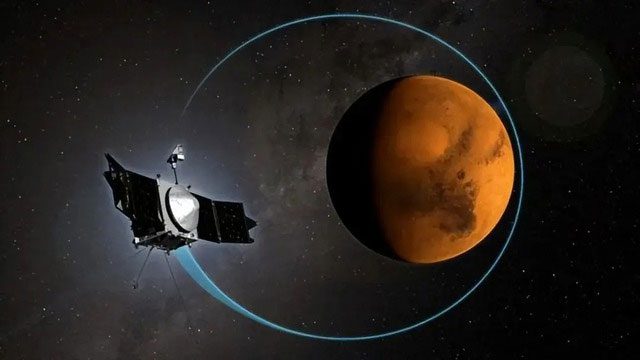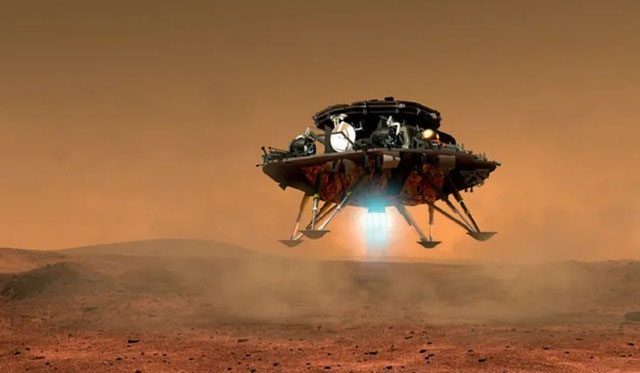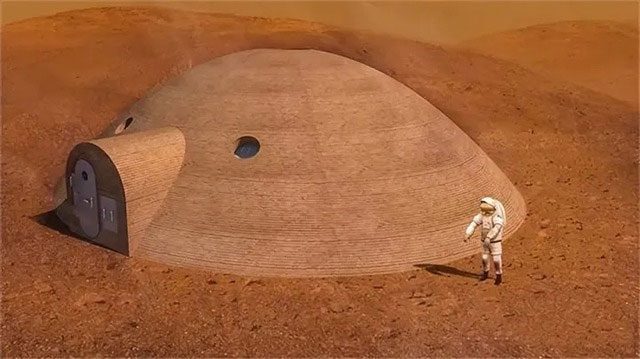Whether they are scientists, astronauts, or ordinary citizens, everyone is profoundly captivated by the Red Planet. But what lies behind this fascination? Is it simply because it is the only planet outside Earth that is potentially habitable?
The Human Curiosity for the Unknown
Mars has captivated human attention since ancient times. Whether it’s the idea of extraterrestrial life in science fiction or the passion for space exploration among scientists, humanity is filled with curiosity and a desire to explore Mars. So, why are people so mesmerized by Mars?
Humans possess an innate curiosity about the unknown. As intelligent primates, we have gradually understood the boundaries of our world through relentless exploration and inquiry. However, Mars, one of the closest planets to us, remains a significant mystery. Scientists have informed us, through data sent back by space probes, that there is water on Mars and potentially conditions suitable for human survival. This information has sparked human imagination about Mars and further fueled our exploration efforts.

In recent years, human exploration and research on Mars have garnered widespread attention. From science fiction to scientific research, the Red Planet continues to ignite humanity’s endless curiosity. But what exactly makes humanity fascinated by Mars?
Exploring Mars can also help us better understand Earth. Earth is our home, but there are still many blind spots in our understanding of it. Through the study and exploration of Mars, scientists can learn from the planet’s formation and evolution, revealing Earth’s origins and potential future developments. This comparative research helps uncover broader patterns in the universe and offers greater possibilities for the survival of humanity in the future.
Mars is also attracting the attention of scientists and explorers as a potential habitat. As Earth’s population continues to rise and resources become limited, humanity is beginning to seek ways to survive beyond our planet. Mars possesses certain conditions and could become a second home for humanity. Although the current living conditions for humans on Mars are still very challenging, scientists believe that in the near future, we will be able to address survival issues on Mars through breakthroughs and technological innovations.
Searching for Earth-like Life Forms
Human exploration and research on Mars consistently attract significant attention, and the passion for the Red Planet is not solely for scientific exploration; the underlying reason may be the desire to find Earth-like life in the universe.

Humanity’s over-exploitation of Earth’s resources and environmental degradation have compelled us to consider finding new habitats. Mars, being the closest planet to Earth, has become a potential target for human immigration in the future. If Earth-like life forms can be found on Mars, this would provide us with motivation to explore and study further, opening up more possibilities for future colonization plans.
As one of the neighboring planets to Earth, Mars shares certain similarities in surface terrain and environmental conditions with Earth, creating opportunities for humanity to search for life forms similar to those on our planet. Scientists have discovered several promising signs of the existence of life through data from Mars probes, such as the presence of liquid water and organic compounds. These discoveries have sparked widespread discussion and speculation about whether life exists on Mars.
Humans have always been interested in the origins of life. To date, Earth is the only known planet with life, and Mars has certainly become a crucial candidate in our search for other life forms. If life forms similar to those on Earth can be discovered on Mars, it will provide us with important clues about the mystery of the origins of life and may reveal the universality of extraterrestrial life.

Exploring Mars aims to ensure the future survival of humanity. So far, Earth is the only planet inhabited by humans, but as time passes, we gradually realize that Earth is not our permanent home. Natural disasters, environmental damage, and potential global crises on Earth could threaten human survival.
To Explore Future Habitats for Humanity
The dwindling resources on Earth have created a growing need for human exploration of Mars. With the ever-increasing population and industrial development, resources on Earth are becoming increasingly scarce. Energy and food supply issues have become global challenges.
To address this, humanity is starting to look beyond space to find new resources, and Mars, as one of the closest planets to Earth, has naturally become the top target. Scientists believe that Mars may possess many Earth-like features such as water and oxygen, and the development and utilization of these resources could bring new hope for humanity.
Human exploration of Mars has become exceptionally important. By understanding characteristics such as Mars’s climate, soil, and atmosphere, we can prepare for future human settlements on other planets.

Exploring Mars also aims to satisfy humanity’s thirst for exploration and adventurous spirit. As a species with high intelligence and curiosity, humans have an innate desire to reach unknown lands and explore uncharted worlds. Mars is considered one of the closest planets to Earth, and its mysterious and distant existence captivates humanity.
Both scientists and space explorers hope to witness the wonders of Mars and uncover the secrets of the Red Planet. Driven by the desire to explore and a spirit of adventure, humanity continues to conduct in-depth research on Mars, pushing the boundaries of science and technology.
Mars’s Resource Potential and Scientific Research Value
Although clear evidence of life has not yet been found, the geological characteristics and chemical composition of Mars indicate that it may contain many rare elements and compounds. These resources include water, oxygen, nitrogen, and various metallic minerals. Water is the cornerstone of supporting life, and ice caps and traces of ice have been discovered on Mars, meaning that water resources could be harnessed to support Mars exploration missions and future colonization plans.

The soil on Mars is rich in nutrients like sulfur and phosphorus, providing the potential for growing crops to supply food and oxygen for humans on Mars. Therefore, Mars’s potential resources make it a valuable mineral deposit for humanity to explore and utilize in the future.
Mars also holds significant scientific research value. Through in-depth exploration of Mars, scientists can gain a better understanding of the planet’s formation and evolution, while also revealing mysteries about the origins and evolution of the Solar System. Mars’s geological structure and rock formations can provide clues about Earth’s early history, enhancing our understanding of our own planet.
Mars has an atmosphere rich in carbon dioxide. By studying climate change and atmospheric movements on Mars, scientists can delve into issues related to global warming and climate change on Earth. Additionally, astronomical phenomena on Mars, such as storms, dust storms, and volcanoes, provide excellent natural laboratories for studying planetary physics and astrophysics. Therefore, as a planet similar yet different from Earth, the scientific research value of Mars cannot be overlooked.
In addition to its resource potential and scientific research value, the plan to explore and colonize Mars holds other significant meanings. Firstly, Mars can serve as a springboard for humanity to venture into space and open a new chapter in the expansion of our universe. From a technical perspective, Mars missions are a crucial driving force for the development of human aerospace technology, fostering innovation and advancements in spacecraft, rockets, and life support systems in space. Secondly, exploring Mars also presents certain economic and commercial benefits.
With the implementation of a sustainable colonization plan on Mars, humanity will have greater business opportunities such as resource extraction, space tourism, and scientific research collaboration. This not only helps stimulate global economic development but could also serve as a new method for addressing resource shortages and environmental issues on Earth.


















































